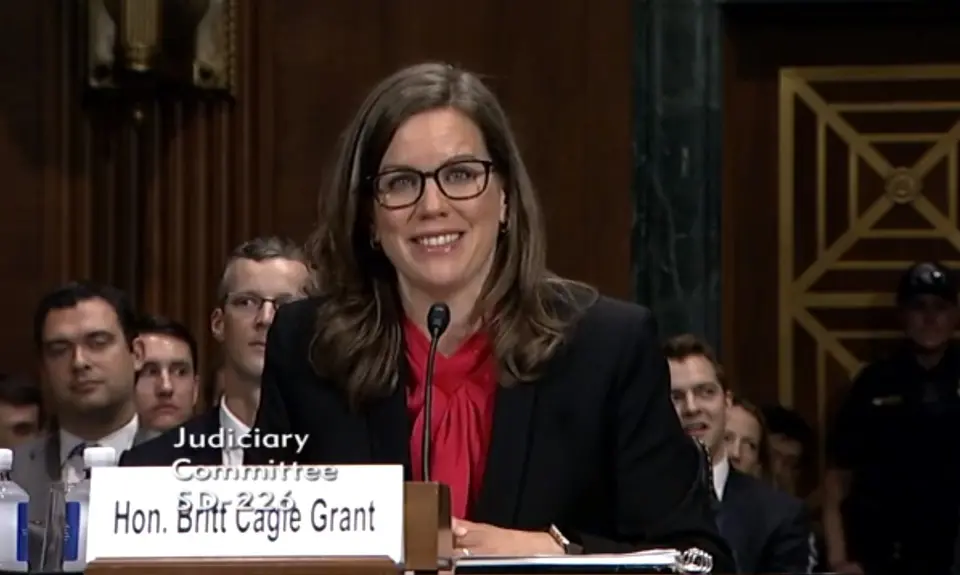“Confirmed Judges, Confirmed Fears” is a blog series documenting the harmful impact of President Trump’s judges on Americans’ rights and liberties. Cases in the series can be found by issue and by judge at this link.
Trump Eleventh Circuit judges Britt Grant and Barbara Lagoa granted a stay that effectively reversed a district court order that because of problems related to COVID-19, Georgia should count absentee ballots that are postmarked by Election Day but received up to three days thereafter. One estimate is that the decision will “likely disqualify thousands” of absentee ballots. The October 2020 decision was in New Georgia Project v. Raffensperger.
Under Georgia law, although there are exceptions for military voters, it is not enough that absentee voters affirm that they have filled out their ballots no later than election day. Instead, Georgia requires that such ballots must be postmarked and physically received by election officials no later than 7 pm on election day itself. Because of the large increase in the number of absentee ballots due to COVID-19 and possible mail delivery issues, more than 8,400 absentee ballots cast in Georgia’s June primary this year were rejected because they did not arrive by election day, which “could have been enough to swing close elections.”
A Georgia voting rights group and several voters filed suit to try to prevent such disqualifications from happening in the November elections. A federal district court judge wrote a detailed 70-page opinion and ordered that any absentee ballot that is postmarked by election day must be counted if it is received by election officials up to three days later. The state appealed and asked the 11th Circuit to stop the order while its appeal is pending.
In a 2-1 decision written by Trump judge Britt Grant and joined by Trump judge Barbara Lagoa, the court complied with the state’s request. Grant claimed that the state’s deadline was “reasonable and nondiscriminatory,” and that it had at least “important” interests in maintaining the deadline, even in light of COVID-19. Grant contended that voters “must simply take reasonable steps and exert some effort” to be sure their ballots arrive on time. COVID-19, she concluded, “has not put any gloss on the Constitution’s demand that States—not federal courts—are in charge” of election rules.
Judge Charles Wilson strongly dissented. He began by noting that the majority’s review of the district court opinion was not “narrow” and “deferential” as the law requires, but instead stayed the court’s order even though the lower court had “applied the correct legal standard,” had made “no clearly erroneous factfinding” and had reached conclusions that were neither “unreasonable” nor “incorrect.” Rather than performing only “light analysis” as Grant had charged, Wilson went on, the district court conducted a “thorough” and “complete” analysis and concluded that the state’s requirements would impose a ”severe” burden on the right to vote in light of COVID-19. Although the district court found that the state had legitimate interests such as completing its count expeditiously, Wilson continued, it properly found that its order imposed only a “small burden” on the state in order to prevent a “more substantial burden on an individual’s right to vote.”
In large part because of COVID-19, it has been estimated that more than 1.4 million Georgians have already requested absentee ballots for the November election. Unless the ruling is changed before November 3, the decision by Trump judges Grant and Lagoa will likely result in the failure to count ballots cast by many of these voters.
